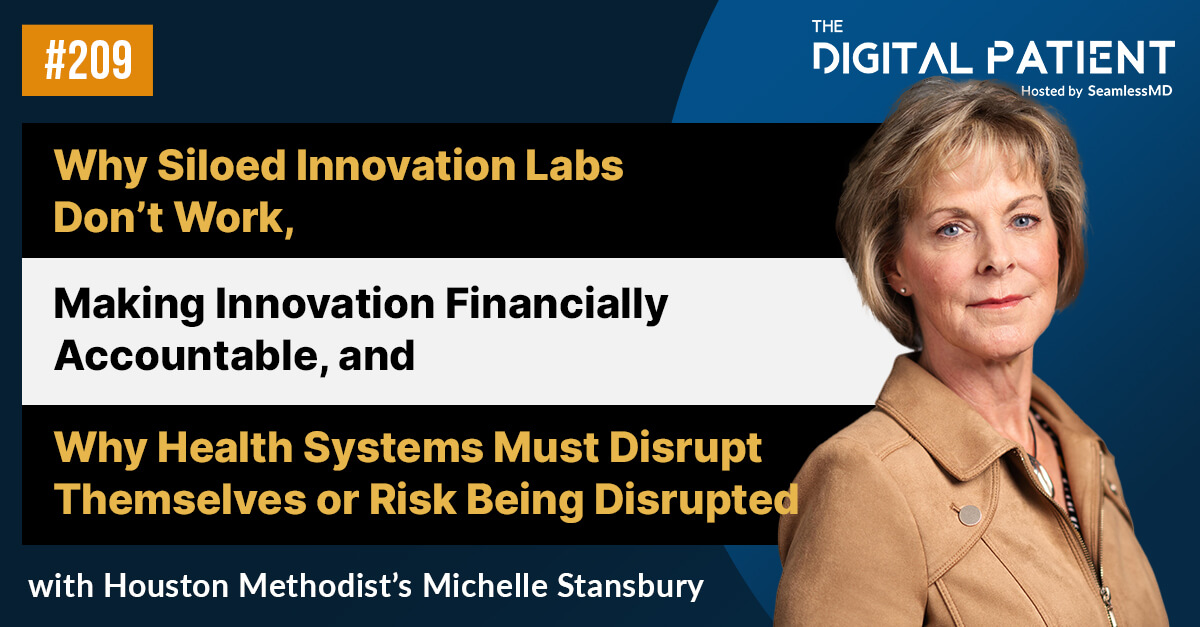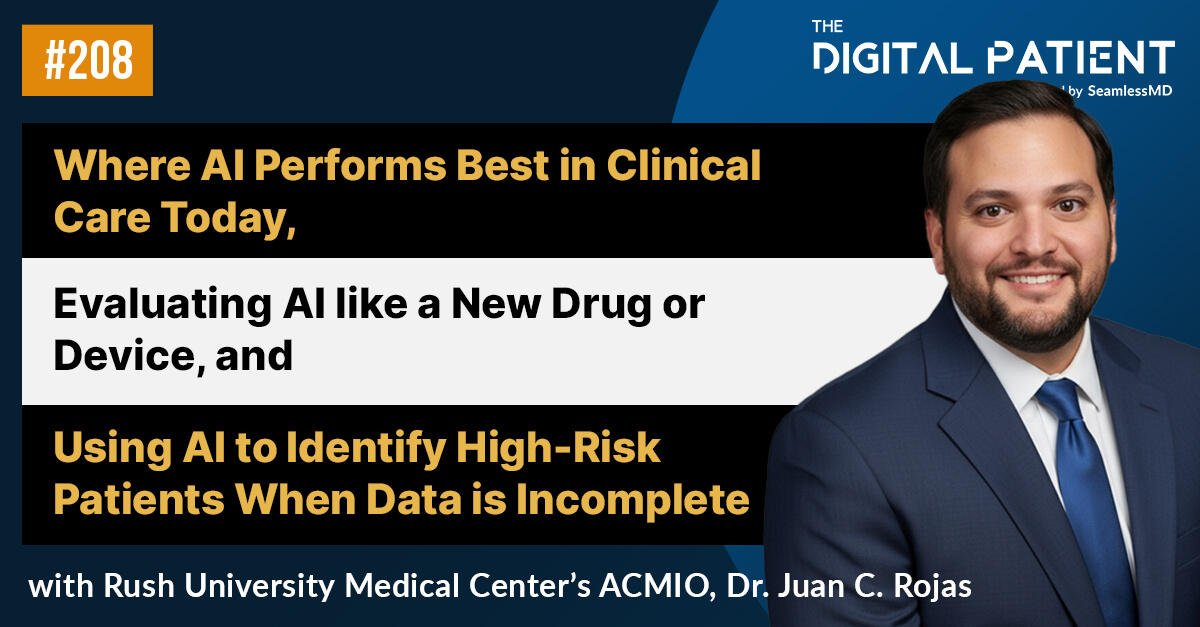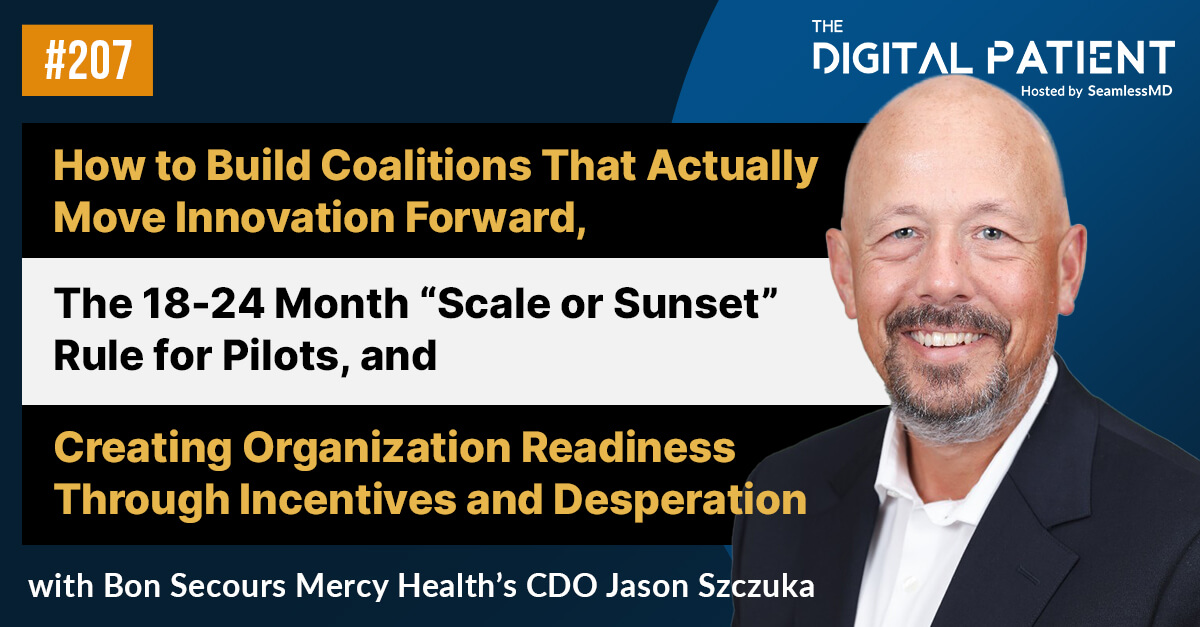Subscribe on: RSS | SPOTIFY | APPLE PODCAST | GOOGLE | BREAKER | ANCHOR
On this episode of "The Digital Patient" podcast, hosts Alan Sardana & Dr. Joshua Liu speak with Dr. Michael Han, Chief Medical Information Officer at CareConnect, an independent business unit of MultiCare Health System, about being a "Urologist-turned-Chief Medical Information Officer, Connecting Care to Patients in Underserved Communities & Why Subtracting from Workflow is Necessary for Innovation". Click the play button to listen or read the show notes below.
Audio:
Video:
Guest(s):
- Dr. Michael Han, Chief Medical Information Officer at CareConnect, an independent business unit of MultiCare Health System
- Dr. Joshua Liu (@joshuapliu), Co-founder & CEO at SeamlessMD
Episode 79 - Show Notes:
[00:00] Introducing Dr. Michael Han, Chief Medical Information Officer at CareConnect, an independent business unit of MultiCare Health System;
[02:00] Dr. Han reflects on his career, noting how his hobbies often lend themselves to social activities in which complex work problems can be worked through;
[08:00] Why Dr. Han once believed becoming a physician was his birthright, how this belief was shaken after being rejected from residency, how this experience forced him to reflect on why he wanted to be a doctor, and how he was luckily accepted (late) into the George Washington University Urology program after a resident dropped out;
[17:10] How Dr. Han was appointed into Informatics serendipitously when the Health System’s defacto informatics lead—the CMO—left the hospital;
[23:10] Why Dr. Han believes the principles behind Informatics are consistent regardless of the EMR vendor and how learning multiple systems can only improve your skill;
[24:55] How Dr. Han discovered the “EMR disparity” during his time with Epic’s Urology steering committee, how he uses Stanford Health Care’s value measures to measure the scope of work vs. Impact for a given EMR optimization, and why he believes there remains an imbalance in impact depending on the physicians at an institution (for e.g. A hospital may have 3 urologists vs. 60 primary care docs, meaning urologists often come last);
[29:00] Why Dr. Han believes folks in IT often struggle with the idea of subtracting things from workflow as opposed to adding to the process, and why Dr. Han would appreciate teams celebrating efficiencies through simplification;
[30:35] Why Dr. Han believes AI’s role should be first and foremost to automate the easy work to better support the skilled human workers such as a radiologist — not replace the physician;
[35:12] How Dr. Han discovered changing habits is equally, if not more, important than adding/subtracting optimizations as the end users (e.g. physicians) are often set in their ways despite the changes IT may make;
[38:28] Why Dr. Han believes his work with CareConnect is meaningful as it allows his team to support hospitals in underserved communities on Epic deployments, and how this aid for external constituents improves his ability to manage and support teams internally;
Fast 5 / Lightning Round:
- What is your favorite book or book you’ve gifted the most?
“Think Again: The Power of Knowing What You Don't Know” by Adam Grant
- Who is a person–dead or alive–you'd love to meet?
“Jesus Christ. I’d have so many questions…” - Would you rather have Super strength, super speed, or the ability to read people’s minds?
“Super speed.”
- What is something in healthcare you believe that others might find insane?
“The amount of red tape...”
- COVID-19 lockdown related – what is 1 hobby or activity you’ve gotten into since the pandemic?
“Did more of my current hobbies — In 2020, I skied more than ever before, played tennis and tried pickleball.”
.svg)

.jpeg)








.png)
